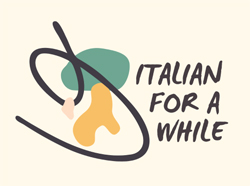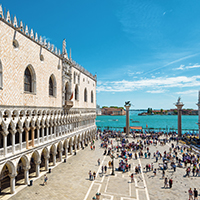How to Rent a Home in Italy
Summary: Renting a home in Italy for the first time can be daunting. You probably have so many questions: Do I need a lawyer? Do rentals come with appliances? How do I find good rentals? How do I choose the right neighborhood? The list goes on and on. Here are answers to some of the top questions plus insight from our members living in Italy.
Navigating the process of renting a home in Italy for the first time can feel overwhelming. Numerous questions might arise: Should I consult a lawyer? Are appliances typically included in rentals? How can I discover quality rental properties? Which neighborhoods will best suit my needs? These are just the tip of the iceberg. Dive in for answers to these pressing questions and gain insights from our members who've made Italy their home.
"Italy, with its rich history, beautiful landscapes, and vibrant culture, is a popular destination for expats from around the world. However, navigating the rental market can be a daunting task, especially for those unfamiliar with the country's real estate practices. This guide aims to provide a comprehensive overview of the process of renting an apartment in Italy, from finding a property to signing the lease.
How Do You Find a Rental Property in Italy?
There are several ways to find rental properties in Italy. Online property portals such as Immobiliare.it, Casa.it, and Idealista are popular and provide a wide range of listings. Local newspapers and real estate agencies are also good sources. Word of mouth can be particularly effective in smaller towns and communities. It's also common to see rental signs on properties, so simply walking around your desired neighborhood can yield results.Does Italy Have an MLS Type System?
Italy does not have a Multiple Listing Service (MLS) like in the United States. Instead, each real estate agency has its own listings. This means you may need to contact multiple agencies to see a variety of properties. However, online portals aggregate listings from multiple agencies, making the search process easier.Do Brokers Have Licenses and How Do I Know if They Are Licensed?
Yes, real estate agents in Italy must be licensed. They should be registered with the local Chamber of Commerce and hold a certificate of professional qualification. You can ask to see these credentials or check their registration online.Should I Buy or Rent?
This depends on your personal circumstances and plans. Renting can offer more flexibility, which is beneficial if you're unsure about your long-term plans. Buying can be a good investment if you plan to stay in Italy for a significant period of time. However, the process can be complex and time-consuming, so it's important to do thorough research and seek professional advice.Is It Difficult to Find Rentals in Italy?
Finding a rental in Italy can be challenging, especially in popular cities like Rome, Milan, and Florence. Competition can be high and prices can be steep. However, with patience and persistence, it's certainly possible to find a suitable property.What Documents Are Required When Renting an Apartment?
When renting an apartment in Italy, you'll typically need to provide your passport, proof of income (such as pay slips or a job contract), and a tax code (codice fiscale). If you're a non-EU citizen, you'll also need a valid residence permit (permesso di soggiorno).Do I Need a Lawyer When Renting an Apartment in Italy?
While it's not mandatory to have a lawyer when renting an apartment in Italy, it can be beneficial, especially if you're not fluent in Italian. A lawyer can review the lease agreement, ensure you understand all the terms and conditions, and advise on any potential issues. Fees can vary, but you should expect to pay around €150-€300 for this service.How Long Is the Typical Lease For?
The typical lease in Italy is for four years, with an automatic renewal for another four years (4+4 contract). However, short-term leases (from one month to 18 months) are also available, particularly for furnished apartments.Do I Have to Pay a Deposit?
Yes, it's standard practice to pay a deposit when renting an apartment in Italy. This is usually equivalent to two or three months' rent. The deposit is returned at the end of the lease, provided there are no damages to the property.What Other Upfront Costs Are There When Renting?
In addition to the deposit, you'll usually need to pay the first month's rent upfront. If you're using a real estate agent, you'll also need to pay their fee, which is typically equivalent to one month's rent. Some landlords may also require a guarantee, either in the form of a bank guarantee or a guarantor.Are Utilities Included?
Utilities are typically not included in the rent and are the responsibility of the tenant. This includes electricity, gas, water, and waste disposal. The cost can vary depending on usage and the size of the property, but you should budget around €150-€200 per month for a two-bedroom apartment.Are Furnished or Unfurnished Rentals More Popular?
Both furnished and unfurnished rentals are common in Italy. Furnished apartments usually include all the necessary furniture, as well as appliances like a refrigerator, stove, and sometimes a washing machine. Unfurnished apartments may not include any appliances, not even a refrigerator or stove. Furnished apartments are often more expensive, but can be a convenient option for short-term stays or for those who don't want to buy their own furniture," said one expat living in Italy.
Become ‘Italian for a While’ with IFA! Learn in Italy on a 1-week to 12-month program - open to students, young adults, graduates, digital nomads, professionals, groups, faculty-led programs, and more. Take courses at an accredited school while immersing yourself in the language, life, and culture among your international peers. Submit an inquiry with IFA to learn more.
Click connect to have our partner contact you via e-mail and/or phone.

Become ‘Italian for a While’ with IFA! Learn in Italy on a 1-week to 12-month program - open to students, young adults, graduates, digital nomads, professionals, groups, faculty-led programs, and more. Take courses at an accredited school while immersing yourself in the language, life, and culture among your international peers. Submit an inquiry with IFA to learn more.
Click connect to have our partner contact you via e-mail and/or phone.
Expats Talk about What Type of Housing They Live In
"A typical expat home or apartment in Milan is often an apartment located in a central or well-connected neighborhood. Expats, indeed, often choose areas that are vibrant and offer a mix of residential and commercial spaces, such as Porta Venezia, Isola, or Navigli, providing easy access to work, dining, and entertainment options. As space can be limited, many apartments feature compact layouts with essential appliances such as a stove, oven, refrigerator, and washing machine," said one expat living in Milan.
"We have a large country property with a 200 year-old stone farmhouse on it that we restored. We have a 100% organic 'azienda agricola' with 500 producing olive trees and 250 citrus trees with other ornamental trees and two natural water springs on it. It is heavenly. The other expats in the area are a mix of apartment dwellers and countryside lovers like us (there are just a few of us)," wrote a member in Catanzaro.
"Let's say this answer depends A LOT on your budget and where you decide to live in the city. And if you can find something. Bolognesi have found a cash cow with Airbnb," commented one expat who made the move to Bologna.
Expats Talk about How they Found their Home
"Finding a place to live in Italy can be done through various methods, including real estate agencies and online property portals (Immobiliare.it and Idealista are popular choices). It's common to rent through an agency, which may charge a commission but help you navigate all contractual and legal aspects," commented an expat living in Italy.
"Finding a place to live in Italy can be an exciting yet daunting task, but with a few steps, you can make the process smoother. Begin by deciding on the region or city you want to live in, as Italy offers diverse options from the bustling cities like Rome and Milan to the serene countryside of Tuscany or the coastal towns of Amalfi. Once you have a location in mind, start researching online through real estate websites such as Idealista, Immobiliare.it, and Casa.it. These platforms list a variety of properties for rent and sale, and you can filter your search by price, size, and other preferences," wrote Jake Barber from SJB Global.
SJB Global is an awarding winning regulated financial advisory firm specialising in helping expats with all areas of financial planning. All of our advisers are qualified in the UK, Europe and the US with a great understanding of the cross-border complications that expat life brings and our job is to make sure we can simplify your finances in the most tax efficient way as possible.
Click connect to have our partner, Jake, contact you via e-mail and/or phone.
SJB Global is an awarding winning regulated financial advisory firm specialising in helping expats with all areas of financial planning. All of our advisers are qualified in the UK, Europe and the US with a great understanding of the cross-border complications that expat life brings and our job is to make sure we can simplify your finances in the most tax efficient way as possible.
Click connect to have our partner, Jake, contact you via e-mail and/or phone.
"When looking for a place to live in Italy, it is important to research the cities and towns that are most suitable for your lifestyle. Consider factors such as climate, cost of living, access to necessary amenities, and commuting times. Websites such as Easy Stanza and Immobiliare provide listings of available apartments, houses and other forms of accommodation, while real estate agencies like Engel & Völkers can provide customized housing searches to match individual preferences and needs. Reading local news sources and exploring the region can also help in finding a place to live that is ideal for you," remarked one expat who made the move to Italy.
About the Author
 Joshua Wood, LPC joined Expat Exchange in 2000 and serves as one of its Co-Presidents. He is also one of the Founders of Digital Nomad Exchange. Prior to Expat Exchange, Joshua worked for NBC Cable (MSNBC and CNBC
Primetime). Joshua has a BA from Syracuse and a Master's in Clinical and Counseling Psychology from Fairleigh Dickinson University. Mr. Wood is also a licensed counselor and psychotherapist.
Joshua Wood, LPC joined Expat Exchange in 2000 and serves as one of its Co-Presidents. He is also one of the Founders of Digital Nomad Exchange. Prior to Expat Exchange, Joshua worked for NBC Cable (MSNBC and CNBC
Primetime). Joshua has a BA from Syracuse and a Master's in Clinical and Counseling Psychology from Fairleigh Dickinson University. Mr. Wood is also a licensed counselor and psychotherapist.
Some of Joshua's articles include Pros and Cons of Living in Portugal, 10 Best Places to Live in Ireland and Pros and Cons of Living in Uruguay. Connect with Joshua on LinkedIn.
Additional Information:
- Italy Guide
- Healthcare & Health Insurance in Italy
- Members Talk about Healthcare & Health Insurance in Italy
- Best Places to Live in Italy
- Real Estate in Italy
- Guide to Real Estate in Italy
- Pros & Cons of Living in Italy
- Cost of Living in Italy
- Best Places to See While on a Look-See Trip to Italy (Plus, Itineraries)
- Moving with a Pet to Italy
- Mental Health Care in Italy
- Is Health Insurance Required When Moving to Italy?
- 2025 Guide to Living in Italy
- Pros and Cons of Living in Italy 2025
- 2025 Guide to Moving to Italy
- More Advice about Retiring in Italy




